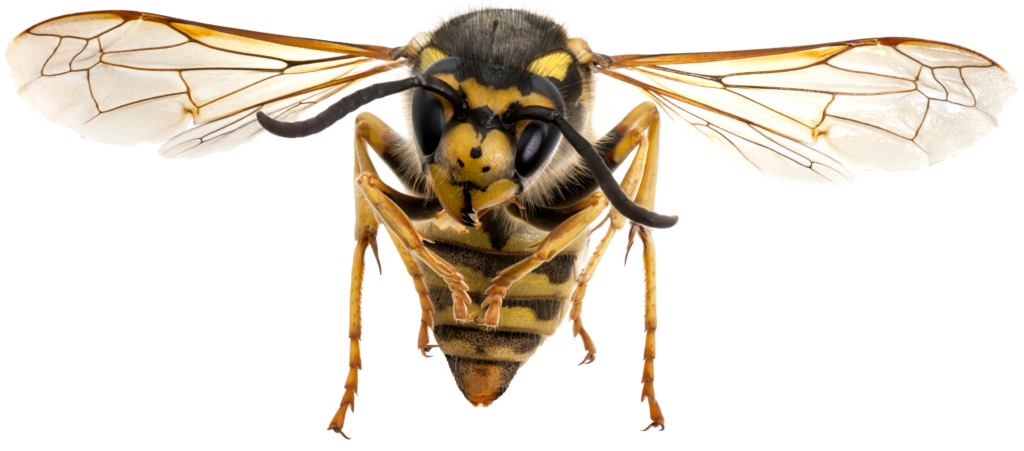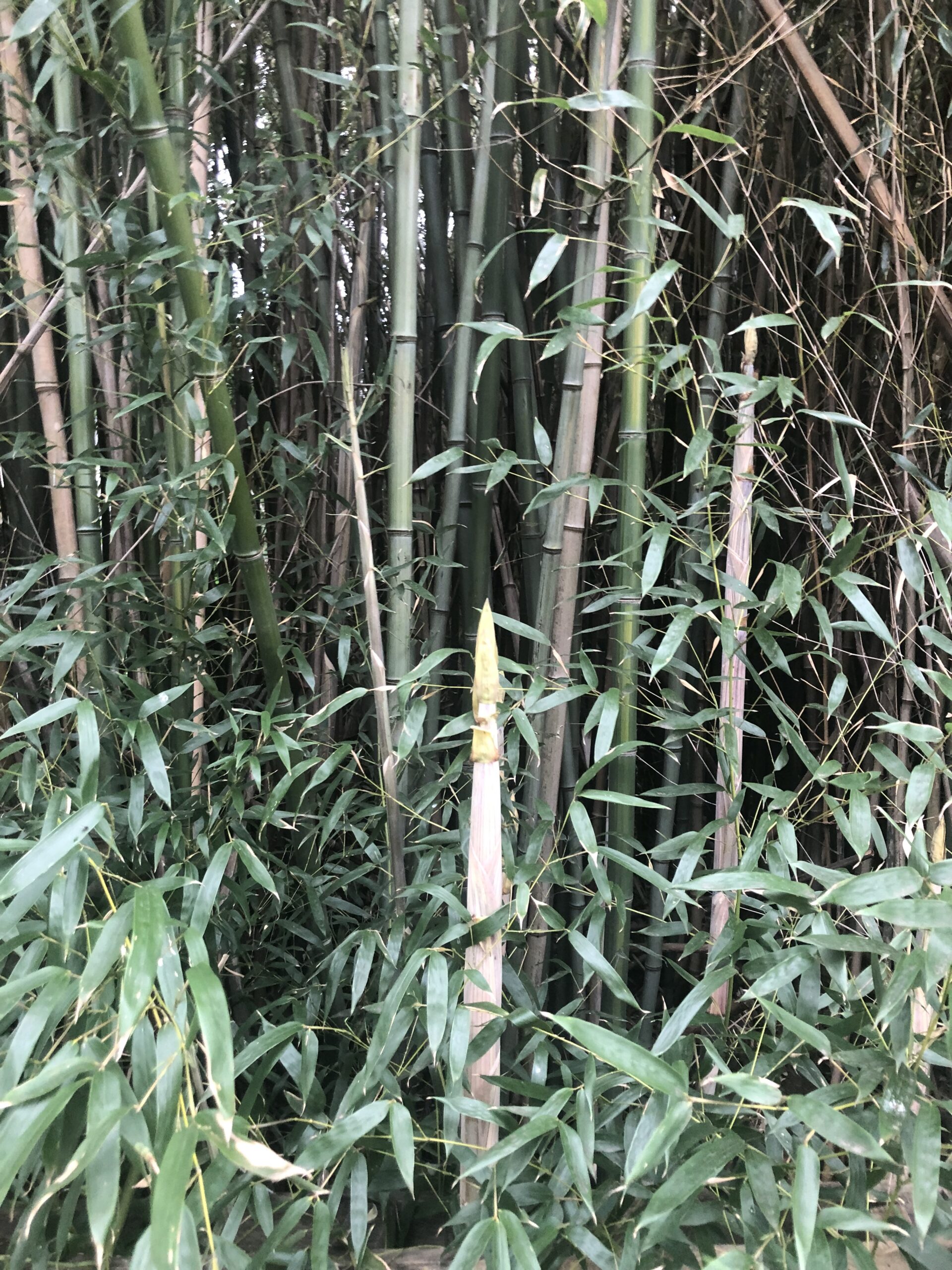
People say “It’s like watching grass grow” to mean “it’s uninteresting,” but they were not thinking about bamboo. Bamboo, a grass, is the fastest growing plant on the planet. Some species can grow more than a meter a day. If you go away on vacation for a week, you won’t find your house when you get back! Shoots can be 30 meters tall, taller than many woody trees. Their rapid growth does not compromise strength, indeed the tensile strength (when you pull on it, how strong is it to resist you?) is greater than steel. The power of shoots coming up from the roots is adequate to push through hard and rocky ground. Legend has it that convicts in east Asia might be tied down over new bamboo shoots to be executed by the stalks pushing upward. The plausibility of this legend was confirmed by the TV sensation “Mythbusters.”
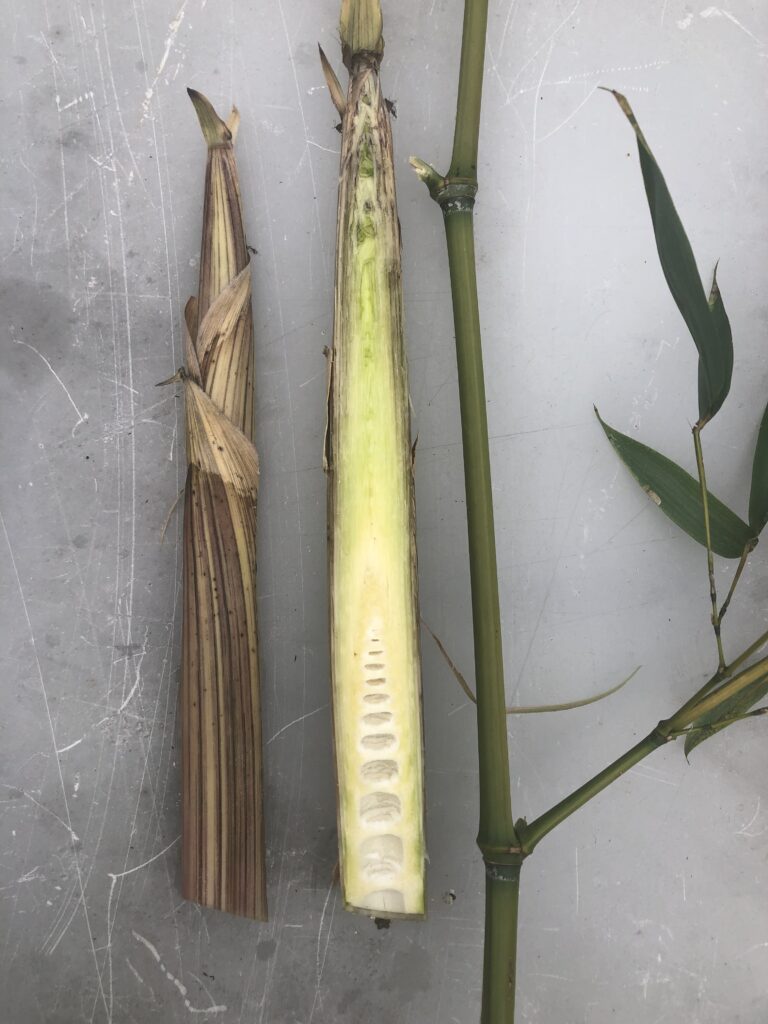
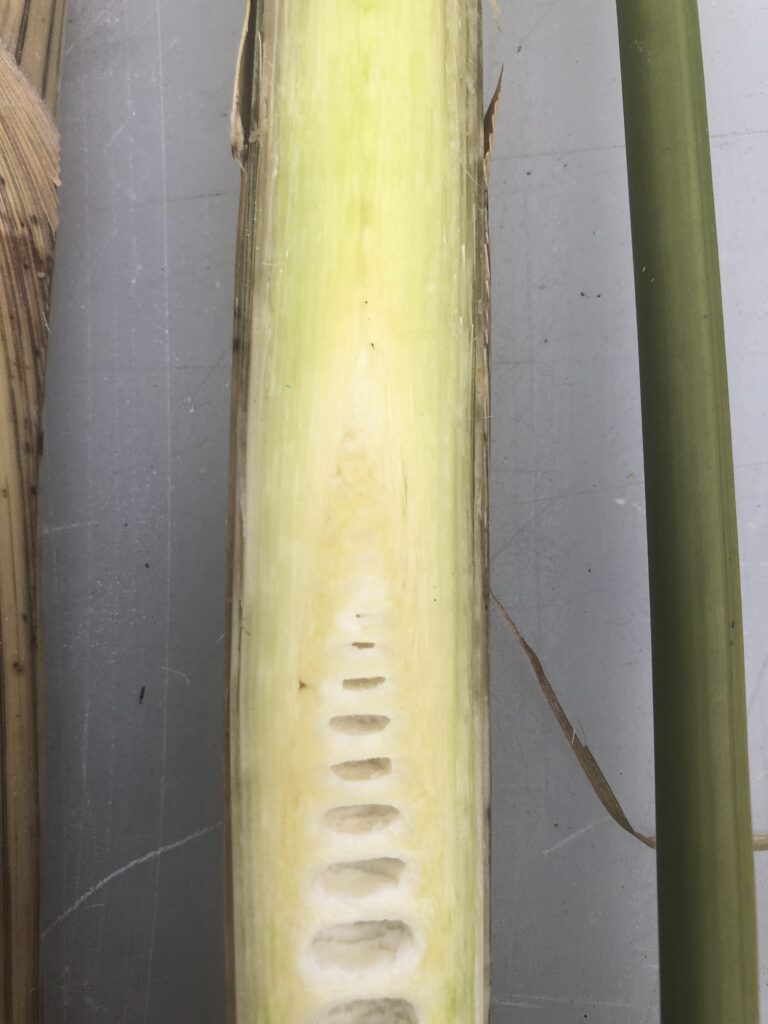
How can it grow so fast? Bamboo has a modular structure such that there are sections, marked by nodes, that repeat up the stem, like other grasses. These are already formed in the bud pushing up from the ground. When it is time, the plant uses water pressure to push these sections upward, like extending a telescoping rod. Water pressure is the key here because all the structures were in place before, so it is not actually development, but rather just expansion. It is the same with the leaves of the trees in the park that burst forth so suddenly in the spring: they are fully formed in the bud, and then they inflate, like a balloon. But, in addition to telescoping nodes, bamboo actually does grow and add mass fast. It is a great consumer of atmospheric carbon. Some bamboos outproduce pines by 6 to 1 on the basis of capturing carbon to produce more vegetable mass.
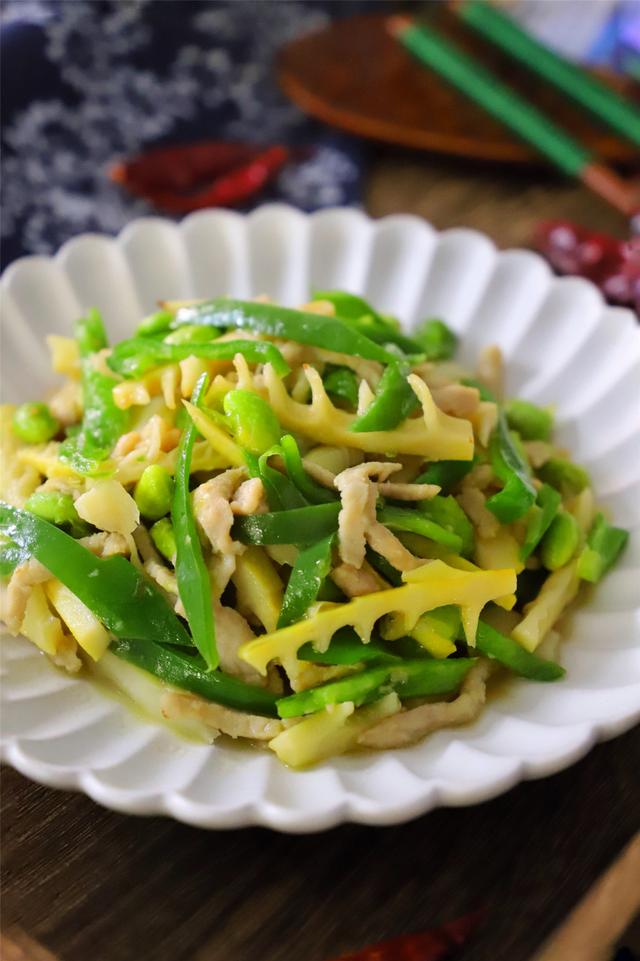
The trade-off for such rapid growth is that bamboo shoots have only a single defense against herbivores: a cyanide compound that is destroyed by cooking and other traditional methods. Bamboo shoots are well-known as food in east Asian restaurants, having high content of vitamin B6, vitamin E, and copper, which is important for skin and brain function. They are the prime food for panda bears, and the pulp of the shoots are also eaten with delight by other Asian animals, such as chickens. There are about 1,500 species of bamboo, and there must be some very useful species waiting to be discovered among them.
